On a noble mission of cleansing our environments, the entire world is increasingly focused on environmental responsibility, sustainability, and renewable energy. Similarly, every progressive and developing country, including their public and private sectors, took it upon themselves to contribute to this cause.
In the ever-evolving landscape of Thailand’s industrial sector, TPI Polene Plc (TPIPL) stands tall as a pioneering force driving progress through sustainability.
While it’s true that the global shift towards green initiatives is driven by public awareness, policy changes, and government participation, it’s important to acknowledge the vital contribution of conglomerates like TPIPL Group. As regulations and incentives from the public sector pave the way, companies like TPIPL translate these initiatives into tangible solutions. Their entrepreneurial spirit, innovative technologies, and operational efficiency complement government efforts, accelerating progress towards a sustainable future.
TPIPL Group’s journey transcends mere participation; under the visionary leadership of the Chief Executive Officer, Prachai Leophairatana, the company has emerged as a pioneer in Thailand’s sustainability landscape.
According to the CEO, their futuristic vision, sustainability’s mission, and commitment to innovation have positioned them as a leading player, shaping the country’s energy sector and inspiring others to follow suit. TPIPL Group’s one of the subsidiary, TPIPL is a major ‘Clinker, Fibre Cement, and Specialty Polymers’ exporter to the global markets like Australia, UK, EU, Taiwan, Korea, China, Philippines, Bangladesh, Malaysia, and India.
Sharing his thoughts on TPIPL’s expansion plans in markets like India, Mr Leophairatana was speaking in an exclusive interview with Insights Success India. The highlights of the discussion are given ahead.
Sir, as a pioneering company in the industry, could you take us back to the beginning of your journey? What motivated you to step into this dynamic ecosystem?
The businesses of the Leophairatana family have roots dating back to the 1940s, primarily engaged in trading soft bulks and other agricultural commodities. At one point, the family held the position of the largest soft bulk trader in Thailand. TPI Polene Public Company Limited (TPIPL) was established in 1978 with a focus on producing LDPE (low-density polyethylene) and EVA (ethylene vinyl acetate) polymers, primarily for packaging purposes. Today, TPIPL’s polymer business centres on high-value speciality polymers, finding applications in solar panel modules, specialized copolymers for packaging and films, healthy shoe soles to replace leather shoe soles, medical syringe, wire cables, hot melts, glues, and more.
In 1992, TPIPL diversified into cement production, capitalizing on the surge in demand for cement and building materials driven by the boom in construction activities amid Thailand’s accelerating economic growth. The company is now the second-largest cement producer in the country and green cement producer with zero carbon (after carbon offsets).
The subsidiary Thai Nitrate, established in 1996, focuses on producing ammonium nitrate for mining applications and nitric acid primarily used in high-tech gadgets’ solvents. TPIPL went public on the Stock Exchange of Thailand in November 1990.
TPI Polene Power Public Company Limited (TPIPP) was incorporated in 2008 to operate power plants utilizing waste heat from cement kilns, later diversifying into electricity production using municipal solid waste (MSW). It currently stands as the largest privately-owned power plant of its kind in Asia, boasting a 440 MW capacity and handling 10,000-12,000 tons of MSW daily. TPIPP was listed on the Stock Exchange of Thailand in April 2017.
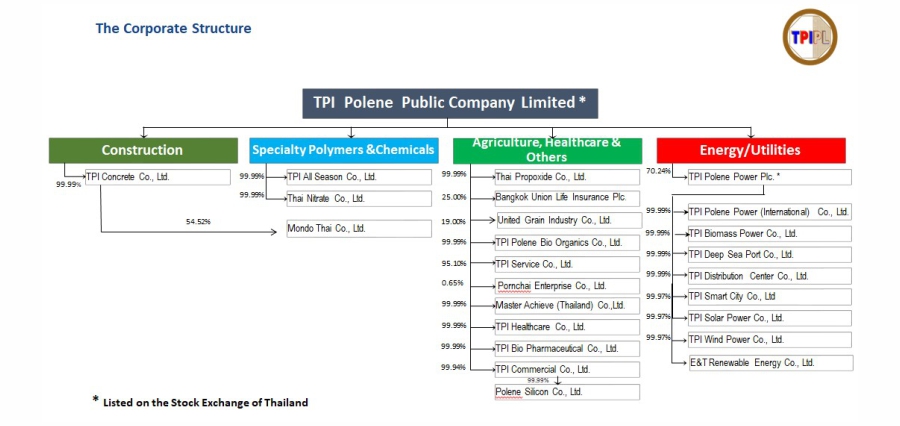
Our coal-fired power plant (150 MW) is undergoing a three-phase modification program to shift to MSW as fuel to achieve fossil-free status by the end of 2025. As of the third quarter of 2023, TPIPP holds 1.5 million carbon credits certified by T-VER (Thailand Voluntary Emission Reduction Program) under the auspices of TGO (Thailand Greenhouse Gas Management Organization). Additionally, the company has acquired 1.2 million I-RECs (Renewable Energy Credits) for its renewable energy power plants, showcasing ongoing efforts in carbon and renewable energy accreditations. Although the carbon market is not yet open in Thailand, these accreditations position the company strategically for future opportunities, serving as indicators of progress in advancing ESG and sustainability goals.
The process of extracting calorific value from municipal solid waste has paved the way for another business avenue – bio-organic compounds. These compounds, including probiotics, synbiotics, organic fertilizers, and pesticides, hold vast potential for applications in sustainable agriculture, livestock, and healthcare. This segment is poised to contribute significantly to Thailand’s agricultural sector, fostering a move towards more sustainable farming practices.
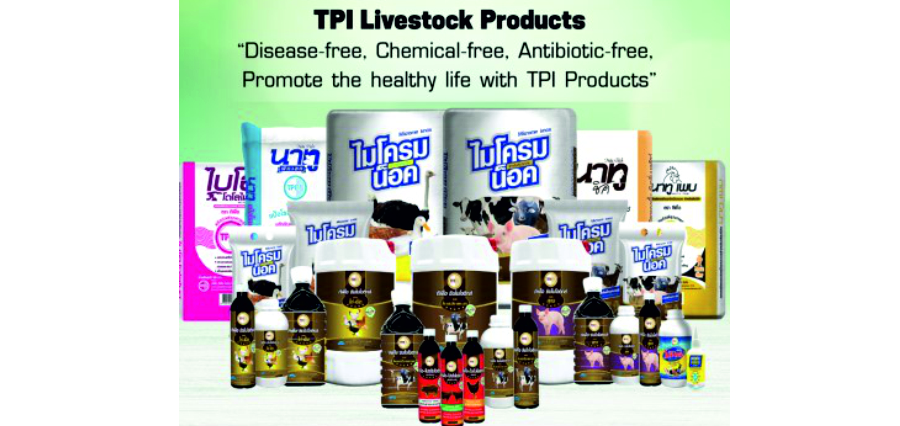


Research and innovation form the core of TPI Polene’s DNA, nurtured in-house and supported by a team of over 500 engineers and scientists. This sets us apart from many other business groups in Thailand, which often opt for bolt-on acquisitions. The cultivation of internal research and development competencies is considered more advantageous for our company, ensuring business continuity (BAU), enhancing employees’ competency, and benefiting society at large. Over the years, we have amassed a considerable list of Thailand’s firsts and currently boast a product suite exceeding 5,000 SKUs, establishing us as a well-diversified industrial conglomerate.
Comprehensive and Diversified Product Suite

TPIPP has emerged as one of Thailand’s pioneering companies in every sector it is present. Could you share the guiding philosophy that has propelled your organization’s success?
The Group’s motto is “We Build the Future”, and our guiding philosophy is encapsulated in how we define TPI: T – Technology, P – Products, I – Innovation.
Technology: driving and expanding businesses using cutting-edge technologies and the latest techniques.
Product: produce top, world-class products to satisfy customers’ needs in all areas of life.
Innovation: moving forward with the newest innovations through top-class R&D facilities.
The industrial landscape is continually evolving. Please brief our audience about TPIPP’s USPs and how you are currently positioned as one of the best companies.
We innovate on products and processes within our core market competencies to cater to our customers’ evolving needs and anticipate changing demands dictated by standards and qualifications from a simple cost competitiveness angle.
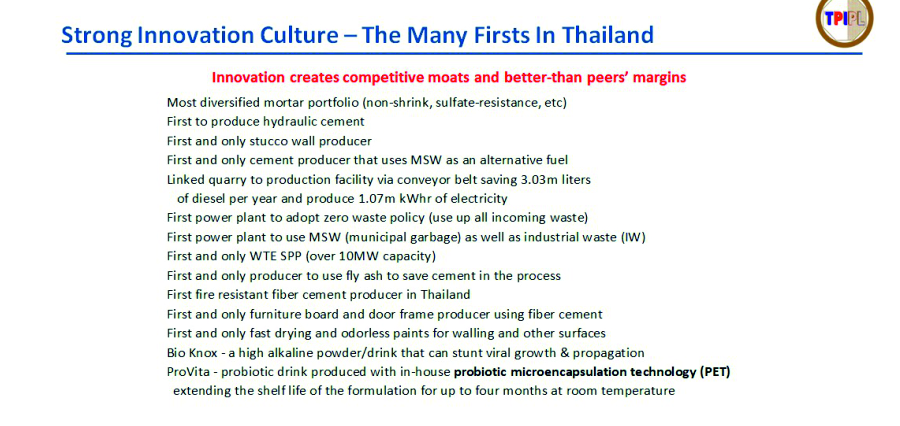
Your inspiring leadership style is often recognized as a driving force behind your company’s achievements. Could you shed light on your approach to leadership and team building within the organization?
Keeping abreast with the latest technological developments and consistently driving the research and innovation capabilities of the R&D team is key to the sustainability of our business. This means hands-on experience and problem-solving. In R&D, the TPI Polene Group grows organically. We do not undertake bolt-on acquisitions that would, more often than not, mean parachuting technical experts in troubleshooting and leaving an aspect of the operations dependent on external constraints.
How does your company balance operational efficiency and customer satisfaction in the modern business scenario?
The essence of the business relies on innovations, and with innovation comes disruptions, but at the end of the day, end-users of industrial materials are governed by strict standards and costs.
Digitalization and technological advancements are crucial aspects of the modern industry ecosystem. How does TPIPL Group integrate these principles into its core functioning and contribute to a technovative future?
Digitalization and advancements in processes have always been integral to any operating systems that drive our high-tech equipment and automation. Machine learning or artificial intelligence has been in the vocabulary for a long time, and what has changed is the level of capability and the speed at which it can deliver the desired product attribute and sustainability of performance.
TPIPL Group has achieved remarkable success. Could you highlight a transformative project or initiative that showcases your company’s commitment to excellence and innovation?
You take a look at our list of Thailand’s Firsts –that can give many insights – and here are a few more examples:
Substitute coal with MSW, beginning with our calciners. By the end of 2023, our four cement kilns can now use up to 25% MSW input. Several cement plants substitute coal with waste-to-energy materials. Where we differ is that we use MSW while others use Industrial Waste. Substitution of coal with MSW is also undertaken in our power plants. We have completed modifying the 70 MW coal/MSW plant into 100% coal. This is now on its learning curve.
The next step in the implementation pipeline is converting the 150MW coal-fired power plant into MSW. This project is divided into three phases, and we began Phase 2. Completion is targeted by the end of 2025. Starting in 2026, our power plant will be fossil-free. If successful, TPI Polene Group would be the first in Asia, if not in the world, to execute such a scale of conversion into MSW (not industrial waste).
Capturing waste heat from cement kilns and recycling it for power: TPI Polene is the first cement producer in Thailand to capture waste heat and use it for power production in big scale.
Extraction of viable level of calorific value from household wastes (also known as Municipal Solid Waste – MSW). Household wastes in Thailand are mainly unsorted, so extracting a good level of calorific value at competitive costs is difficult. It took TPI Polene Power over ten years to perfect the process and bring down conversion costs to a viable level.
Utilizing bio-organic expertise from MSW plants by our R&D team to manufacture bio-organic compounds such as synbiotics, probiotics, pesticides and fertilizers for agriculture applications, including animal farming and aquaculture. The knowledge and know-how gained by our R&D team on how to handle /process bio-organic compounds have resulted in a cache of products that could help advance the agenda of Regenerative, Sustainable and Organic Farming, to achieve “Food Safety and Food Security” apart from the obvious contribution to the reduction of methane generated by landfill waste.
Organic R&D in both product and processes to offer high quality products at competitive costs is underpins commitment.
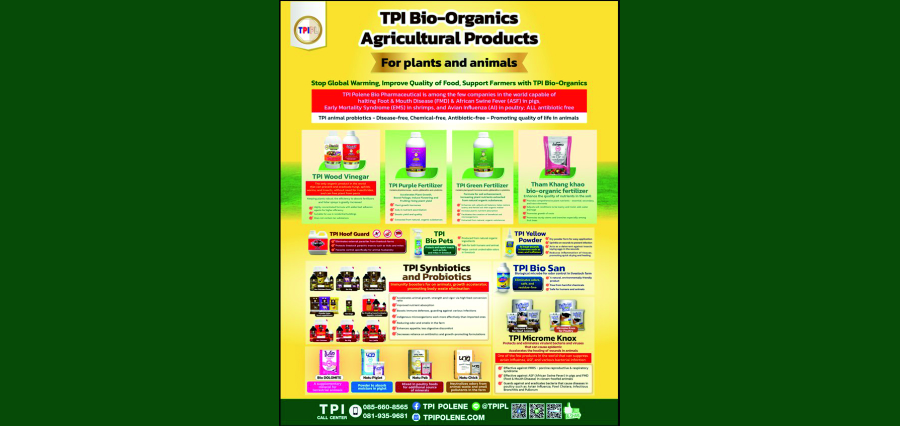
As a leader in Thailand’s pioneering niche sector, your company has likely faced its share of challenges. Could you share an instance where your team’s resilience and ingenuity triumphed over adversity?
Competition is by far the biggest threat. We may claim success in handling the negative effects of competition – price and volume – based on the fact that our plant utilization rate has always very high, except during major maintenance shutdowns.
The COVID-19 pandemic has reshaped industries globally. How has your firm navigated these unprecedented times and adapted its strategies to ensure business continuity?
Apart from the transient effect in domestic volume demand for Cement and Building Materials due to the mandatory suspension of construction activities, TPI PL Group has indirectly benefited from the pandemic because our WTE-MSW-fired power plant was awarded the contract to burn COVID-19 waste. Our BioKnox can counter COVID-19 virus successfully, resulting in healthy Thai society. Also, our Provita-Probiotics promoted the health of our people.
Looking to the future, what is your vision for your company? How do you aspire to continue significantly impacting Thailand’s transformational corporate landscape?
We intensify our R&D efforts in products and processes to stay ahead or at least remain relevant amidst evolving trends in materials and specifications dictated in part by the sustainability agenda. Our investments will continue to be driven by our Sustainability Goals and BCG-economy precepts, changing all fossil engines to electric motors. We are also committed to our mission to be a fully green power plant by 2026 with installed capacity of 545 MW excluding the new projects currently under consideration.
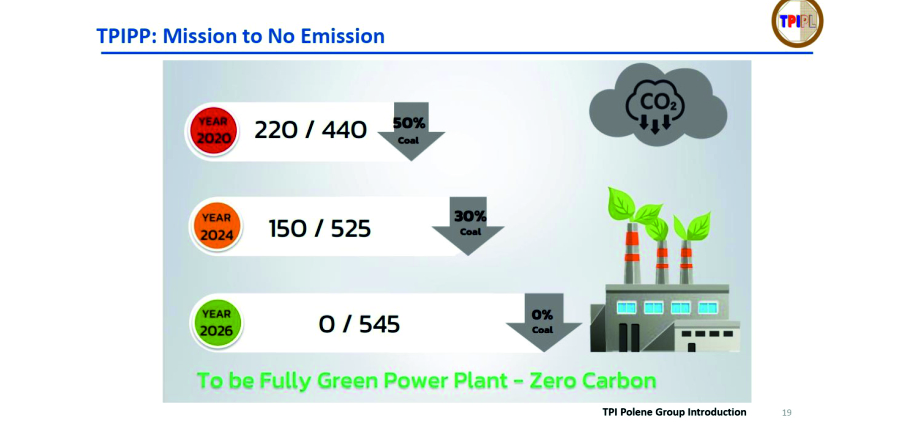
For more information, please visit www.tpipolene.co.th, or connect at prachai@tpipolene.co.th.


